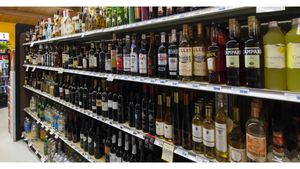CARGILL R-T-E LINE IDLED AS INVESTIGATORS CONTINUE LISTERIA PROBE
WACO, Texas -- The production lines here that produced the majority of ready-to-eat products for Cargill Turkey Products remain shut down as federal food-safety investigators and the company's own experts search for possible sources of Listeria monocytogenes.The strongest evidence to date linking the items to more than 30 illnesses, as well as several fatalities and miscarriages, is an identical match
January 1, 2001
ROBERT VOSBURGH
WACO, Texas -- The production lines here that produced the majority of ready-to-eat products for Cargill Turkey Products remain shut down as federal food-safety investigators and the company's own experts search for possible sources of Listeria monocytogenes.
The strongest evidence to date linking the items to more than 30 illnesses, as well as several fatalities and miscarriages, is an identical match in genetic structure between blood samples taken from victims and product samples tested by investigators from the Centers for Disease Control and Prevention, Atlanta, and the U.S. Department of Agriculture, Washington.
It was this preliminary connection that prompted Cargill executives to announce the voluntary recall and shut down the processing line, according to Mark Klein, Cargill Turkey's communications manager.
"Final confirmation is not yet in, but we felt it was the right thing to do, based on USDA's and the CDC's preliminary findings, to go forward with the recall," he said.
Klein told SN the recall phase of the investigation is essentially completed. More than 50,000 pounds of the 16.7 million pounds of product recalled are back in the company's distribution centers, and the company's special hotline set up at the start of the callback has answered thousands of calls from consumers.
"I think we broadcast the recall wide enough so that anyone who needed to hear about the recall did hear about it," said Klein.
Trade customers, including retailers, have been told by Cargill about alternate sources of poultry products, including competitors. While Cargill manufactures some of R-T-E products at another plant in Springdale, Ark., it isn't enough to cover demand, said Klein. And, there is no timetable in regards to restarting the Waco line.
The affected products, distributed under several names, were manufactured at the Waco plant between May 1 and Dec. 11. Some of the products sold to the retail channel were marked with the establishment number P-635. Other items were distributed to food service in bulk form, and contain no traceback markings, though the company used its own sales records to contact those trade customers.
Among the brands sent out to supermarket delis and independent retail outlets in sliced form were: Owen's, Plantation Fiesta, Honeysuckle White and Riverside; unsliced product bearing the identification mark include Boar's Head, Dine Rite, Old South, Plantation and Honeysuckle White.
Raw, ready-to-cook products, such as whole birds, are not affected by the recall, even though they are processed in the same plant, said Klein. They are handled in a completely separate line, he said.
Against this backdrop, Cargill also acknowledged that internal testing revealed the presence of both a generic form of Listeria, as well as the deadly Listeria monocytogenes strain, several months before federal food-safety investigators brought company officials their suspicions. The pathogen was found on equipment in one case, and in product samples in the other.
"Cargill has a voluntary testing program. We test for Listeria environmentally and through random product sampling," said Klein. "If it's found in the environment, then we go back and make physical alterations to a floor or a wall if we believe the problem is there."
He added that Listeria is an organism that thrives in cold, moist places, such as floor or wall cracks.
In the other case, involving product samples, Klein said no recall was necessary because the tested products had not yet entered the distribution channel.
"Cargill adheres to a strict 'test and hold' policy," said Klein. "Nothing leaves us until test results are returned."
Consumer publications picked up on the prior cases and raised questions as to why the company did not notify federal food agencies after the earlier Listeria findings. Klein noted that current food-safety regulations do not require food processors to alert authorities unless the product is already on its way to consumers.
In addition, he said it's not uncommon for environmental tests, in particular, to produce positive Listeria results.
"[Cargill's] chief microbiologist said that if you test for Listeria over a year's time, and never find a trace of it, then your testing program isn't effective," he said.
"Ours is a thorough test that really seeks to find it, so we can go ahead and make corrections as needed."
About the Author
You May Also Like




